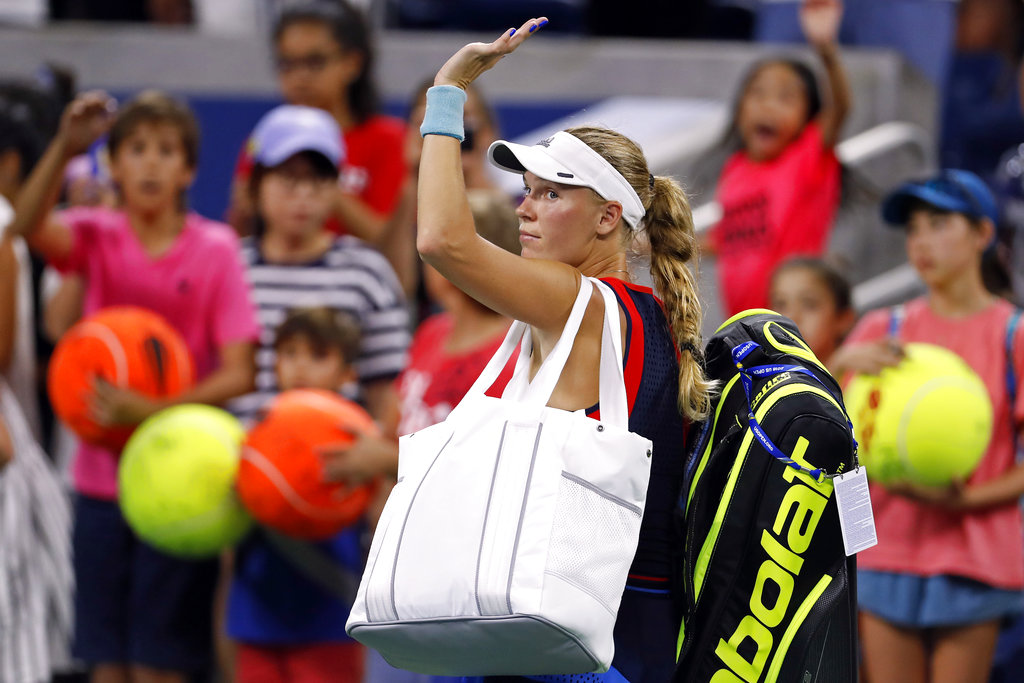
Caroline Wozniacki, of Denmark, waves as she leaves the court after losing to Lesla Tsurenko, of Ukraine, during the second round of the U.S. Open tennis tournament, Thursday, Aug. 30, 2018, in New York. (AP Photo/Adam Hunger)
NEW YORK — All it took was two rounds at the U.S. Open for the top two seeded women to leave the draw, with No. 2 Caroline Wozniacki following No. 1 Simona Halep on the way out.
For Wozniacki, a two-time finalist at Flushing Meadows and the reigning Australian Open champion, her 6-4, 6-2 loss to 36th-ranked Lesia Tsurenko of Ukraine on Thursday night was a second consecutive second-round Grand Slam exit.
Both Wozniacki and Halep, who was upset on Day 1, were beaten at the new Louis Armstrong Stadium. Two-time major champion Garbine Muguruza lost there, too, in the second round, so there’s something of a reputation already for the rebuilt arena.
“Guess Wimbledon used to have a ‘Graveyard Court,'” Wozniacki said, referring to the old Court No. 2 at the All England Club, which was infamous for upsets before it was torn down. “Maybe that is going to be the new ‘Graveyard Court.’ I think it’s a little too early to tell.”
For years, Wozniacki had to endure questions about why she was able to reach No. 1 in the rankings but wasn’t able to claim a major championship. She finally filled that gap on her resume this January in Melbourne, but if a burden was lifted, the Dane hasn’t played like it.
Wozniacki is 5-3 in Grand Slam matches since, following a fourth-round showing at the French Open with second-round departures at Wimbledon and the U.S. Open, where she was the runner-up in 2009 and 2014.
She was asked whether having the Australian Open trophy makes these sorts of setbacks more acceptable.
“I don’t think it’s easier,” she replied. “I don’t think it ever gets easier.”
Tsurenko, meanwhile, has never been past the fourth round at any Grand Slam tournament.
“I was really brave, I think, today,” she said.
Things didn’t look good for her at the outset, when she shook her right forearm and had a trainer come out to massage it at changeovers. Tsurenko said she hurt it Monday and the pain returned when she served early in Thursday night’s match. From that moment on, Tsurenko decided she would just hit soft serves, instead of flat ones, to try to help her arm.
Essentially, she just wanted to put the ball in play. That worked: Wozniacki wound up her own undoing in many ways, producing 35 unforced errors and only six winners.
“She was playing smarter than me. She played the game that I was supposed to be playing. She got a lot of balls back. She played with the angles. She waited for the short ball. When the short ball came, she played aggressive. She went back and kept the ball in play when she had to,” Wozniacki said. “I should have made better adjustments. I just didn’t.”

